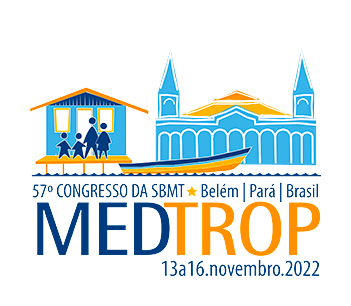Dados do Trabalho
Título
SARS-CoV-2 reinfection: A series of reinfection cases from Brazil documented by the genomic features of first and second infecting strains
Introdução
Reinfection cases of Severe Acute Respiratory Coronavirus 2 (SARS-CoV-2) have been reported globally. These events have become more frequent since the emergence of the variants of concern (VOCs) in the last quarter of 2020. The first case in Brazil was reported in December 2020.
Objetivo(s)
In this study, we evaluated a series of well documented reinfection cases in Brazil from 2020 to 2022.
Material e Métodos
SARS-COV-2 was detected in two samples of COVID-19 cases collected at least 90 days apart (Ethics Committee number CAAE: 68118417.6.0000.5248) . Up to 392 reinfection suspected cases from different Brazilian regions (Midwest, North, Northeast, South, and Southeast) were evaluated and the case confirmation was performed by real time RT-PCR followed by whole genome sequencing. SARS-CoV-2 lineages were characterized, and the presence of minor variants characterized using the Viralflow.
Resultados e Conclusão
A total of 99 reinfection cases were confirmed and all cases had satisfactory clinical progression. Lineages responsible for the first infection of cases were: B.1.1.33, B.1.1.28, and P.2 in 2020 (49 cases) and P.1, P.2, B.1.1.7, N.9, AY.99.2, and AY.101 in 2021 (43 cases) and BA.1/BA.1* (7 cases) in 2022. The second SARS-CoV-2 infection of these cases were related mainly by the variant of interest (VOI) P.2 (2 cases), or Variant of Concern (VOC) Gamma/P.1/P.1* (9 cases), Delta/AY*/B.1.617.2 (5 cases) and Omicron/BA* (83 cases). The VOC Omicron has been predominant in reinfection cases (81,8%, 81/99) caused by different lineages BA.1 and BA.1*. From these confirmed reinfection cases 7,7% reported prior complete vaccination course. The analysis of minor variants in the SARS-CoV-2 genomes from the first infection and second infection showed 90% (39/43 cases analyzed) presented minor variants, 53% (n = 23/43) presented minor variant in the first and second episode and 34% (n = 15/43) presented with a minor variant only in the second infection. Compared to the VOC Delta, the VOC Omicron contains almost twice as many mutations in the Spike protein (S) and important mutations in the ORF1A region, mutations already present in other VOCs and others known to evade antibody neutralization and increase the chances of reinfection cases. These findings add to data indicating that natural SARS-CoV-2 infection does not necessarily prevent subsequent infections and further demonstrate the important contribution of VOCs in these cases.
Palavras-chave
SARS-CoV-2; Reinfection COVID-19; SARS-CoV-2 reinfection
Área
Eixo 09 | COVID-19
Categoria
NÃO desejo concorrer ao Prêmio Jovem Pesquisador
Autores
Renata Serrano Lopes, Elisa Cavalcante Pereira, Ighor Arantes, Luciana Reis Appolinario, Alice Sampaio Rocha, Maria Ogrzewalska, Bruna Mendonça da Silva, Fernando Couto Motta, Marilda Mendonça Siqueira, Paola Cristina Resende, and Fiocruz COVID-19 Genomic Surveillance Network
